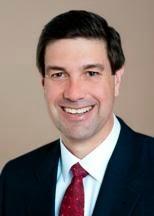
Rob Riley
We have shown that Alabama Republican Rob Riley lied to The New York Times about the defamation lawsuit he and lobbyist Liberty Duke filed against my wife, Carol, and me. But why should Riley stop there? Why not extend his oily ways to an interview on the same subject with the Committee to Protect Journalists (CPJ), the organization that identified me as the only incarcerated journalist in the western hemisphere for 2013?CPJ's Sara Rafsky interviewed Riley for an article titled "Censorship in Alabama's Shelby County." It sounds like Riley mostly blew off steam while sidestepping substantive questions, but Rafsky summarized his words with these two paragraphs:
Riley said in a telephone interview he has a right to seek injunctive relief in a defamation case and there is legal precedent for doing so. He said someone who decides "to make up a lie, destroy someone's reputation, that's not journalism."
Riley told CPJ: "Shuler has a history of making up things and writing things that are outlandish lies...I am going to pursue every avenue possible to me in the courts to defend my name, my family and my business. . . . He has no proof this is true. He has just decided to be a cyber-bully and make stuff up and I've had enough."
Let's take a closer look at the first paragraph:
* Riley says he has a right to seek injunctive relief in a defamation case--The truth: No he doesn't. Near v. Minnesota, the "foundational" 1931 U.S. Supreme Court case on the subject, makes it clear that a temporary restraining order and preliminary injunction (Riley sought both) are unlawful prior restraints under the First Amendment. Legal experts ranging from Erwin Chemerinsky on the left to Ken White (of the Popehat blog) on the center/right, have shown that Riley's statement is false.
* Riley says there is legal precedent for seeking injunctive relief in a defamation case--The truth: No there isn't. In its amicus brief to the Alabama court, the ACLU showed that key U.S. Supreme Court decisions prohibiting preliminary injunctions were not presented in the Riley/Duke case, and the injunction itself cites cases that do not support its issuance. (See ACLU brief at the end of this post.) This is from Footnote 4 in the ACLU brief, and we will address this issue further in an upcoming post:
Indeed, not only were these substantial U.S. Supreme Court cases not presented to the Court, the cases cited in the Preliminary Injunction (see p. 2 and n.3) demonstrate that injunctive relief in a defamation case requires a final determination on the merits of the litigation.
Now, let's look at the second paragraph from the CPJ article, where Riley claims that I have "a history of making things up and writing things that are outlandish lies"; he is "going to pursue every avenue possible" to defend his name, family, and business; and I have "no proof this is true."
Riley seems to be frothing at the mouth here, and his statements are so generic that perhaps it would be instructive to consider some followup questions the reporter could have asked:
* If Shuler wrote "outlandish lies" about you, why didn't you file an affidavit stating specifically how Shuler's reporting was false and defamatory? Why did you rely only on an affidavit from Liberty Duke, while you filed no similar sworn statement? Why have you never denied under oath the allegations in Shuler's reporting?
* If you were going to pursue "every avenue possible," why didn't you seek a full adjudication at trial, as spelled out in Pittsburgh Press Co. v. Pittsburgh Commission on Human Relations, 413 U.S. 376 (1973)? There was no trial in the Shuler case because you didn't seek one, correct?
* Why didn't you pursue the avenue of placing your claim before a jury? Why did you allow Judge Claud Neilson to essentially serve as a one-man censor, in apparent contradiction of Bernard v. Gulf Oil Co., 619 F. 2d 459 (1980). Did you want Neilson to act as censor because he has longstanding ties to Birmingham attorney Bill Baxley, with whom you now are working in the ongoing Lee County grand-jury probe? Was Neilson hand-picked to give you favorable treatment and ensure that you would not have to face scrutiny from a jury--or answer uncomfortable questions under oath?
* You claim Shuler "has no proof this is true," but as plaintiffs, the burden is on you and Ms. Duke to prove the allegations are false, correct? Given that, why did you not engage in the discovery process to prove the allegations are false? Why did you and Ms. Duke not sit for depositions, why were there no interrogatories in this case, why did you not turn over relevant documents (e-mails, text messages, phone records, etc.)? Why did you apparently avoid the discovery process altogether?
* If you are confident about the power of your complaint, why did you try to hide it from the public by insisting that the case file be sealed? You claim that Mr. Shuler reported "lies," but as of now, no jury in any legitimate court of law ever has found his reporting to be false or defamatory, correct?
* You complain about Roger Shuler's reporting, but why did you sue his wife, Carol Shuler? Is this just beating up on an innocent party, someone who had nothing to do with your claims? What does this say about your treatment of women in general? Are you just a bully who happens to wear nice suits?
Wouldn't it be interesting if Sara Rafsky conducted a followup interview with Rob Riley and posed these questions (among others) to him? How long do you suppose Mr. Riley would stay on the phone?
(To be continued)
ACLU Memorandum by Roger Shuler
